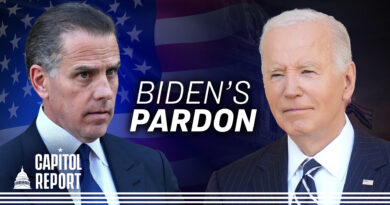Should Tipping in US Restaurants be Retained or Abolished?
Customers appreciate having the freedom to choose, while servers prefer the security of a guarantee.
In an episode of The Flintstones from the 1960s titled “The Drive-In,” Fred and Barney try to revive a failed restaurant. They are advised by a supplier that they need three tons of parsley to succeed.
When asked why, the vendor responds, “You put some parsley on each order so the customer can throw it away… It’s been going on for years.”
While the tradition of putting parsley on food orders has nearly disappeared, the ongoing debate over restaurant tipping remains as relevant as ever.
Tipping, as it is known in America, has been a standard practice since Prohibition. Despite being a crucial element in the U.S. restaurant industry, tipping has faced criticism for being either too stingy or overly generous. It may soon reach a point where customers have more influence over the terms.
“The hospitality industry relies heavily on labor to generate revenue, compared to other small businesses,” stated Susan Cohen, president and CEO of the South Carolina Restaurant & Lodging Association, in an interview with The Epoch Times.
“Many full-service restaurants have seen costs rise by 35 percent for food, staff, and other expenses since the pandemic. Without tipping, it would be challenging to maintain staff without significantly raising menu prices,” she added.
Comparable to the restaurant parsley scenario, the debate remains if tipping should be required or left to the discretion of the customer.
Servers Cara Newman from Maryland and Hannah Moore from Michigan advocate for a standardized industry guideline—mainly because relying on optional tipping leads to uncertainty for customers and inconsistency for servers in their earnings.
Newman pointed out that earnings without tips fall below the minimum standards for other professions.
She emphasized that servers have to juggle multiple tasks, provide timely service, prepare the restaurant before opening, memorize changing menus, and maintain exceptional customer service skills while working long hours under pressure.
Moreover, Moore emphasized that service industry workers should not have to work excessively long hours just to meet the average living wage in the country.
Regular restaurant customers Louie Lewis and Harold Moore from Greenville, South Carolina, disagreed with the notion of mandatory tipping.
Although Lewis acknowledged instances where servers were not tipped on large orders or dealt with rude customers, he personally experienced few such situations.
“In my 40 years of dining out, I’ve had mostly positive experiences and have rarely not tipped a server,” Lewis shared with The Epoch Times.
Moore added that being able to choose whether to tip actually motivates him to tip the servers.
“If tipping were obligatory, I might hesitate to leave a tip,” Moore admitted to The Epoch Times.
The majority of restaurant customers share Moore’s perspective.
John Sobota, a lecturer, recruiter, and program director of hospitality and technology innovation at the University of Wisconsin, mentioned that implementing a universal set of guidelines for tipping could be challenging.
“Given that hospitality is linked to disposable income, servers should receive tips based on the quality of service provided,” Sobota expressed via email to The Epoch Times. “As long as the public trusts the economy, tipping should not be a problem.”
Cohen highlighted that even in cases where issues arise, restaurant patrons typically compensate for servers’ lower minimum cash wages through generous tips.
“With tips, full-service restaurant servers earn an average of $27-$40 per hour or even more,” she noted. “I believe that the traditional tipping model will persist in the restaurant industry, despite some resistance to tipping prompts on payment screens where tipping was not customary.”





